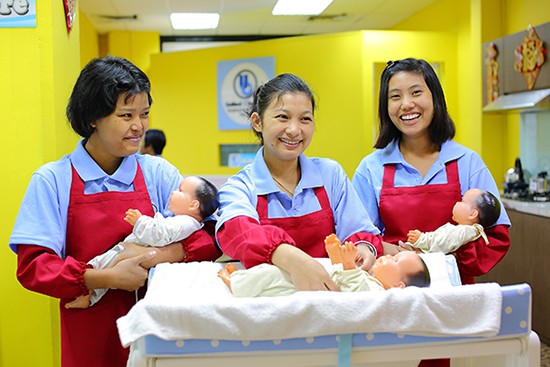In many parts of the world, foreign domestic helpers are the backbone of households, yet their contributions often go unnoticed, and their rights remain overlooked. This invisible workforce, predominantly comprising migrant women from impoverished regions,
In many parts of the world, foreign domestic helpers are the backbone of households, yet their contributions often go unnoticed, and their rights remain overlooked. This invisible workforce, predominantly comprising migrant women from impoverished regions, plays a crucial role in supporting families, yet they face numerous challenges and injustices that demand attention from society and policymakers. Foreign domestic helpers often leave their homes in search of better economic opportunities, only to find themselves in vulnerable and exploitative situations in their host countries. Many are subjected to long working hours, low wages, inadequate living conditions, and even physical or verbal abuse. Their lack of legal protections and limited access to justice leave them susceptible to exploitation by unscrupulous employers. Social justice demands that we recognize the dignity and rights of all individuals, regardless of their occupation or nationality. This principle must extend to foreign domestic helpers who deserve fair treatment, respect, and access to essential services. It is essential to acknowledge the valuable role they play in supporting households and economies, and ensure that they are afforded the same rights and protections as other workers.

One critical aspect of addressing social justice for 外傭 is the need for comprehensive legal frameworks that safeguard their rights. This includes legislation that establishes minimum wage standards, limits working hours, ensures access to healthcare and social security, and prohibits discrimination and abuse. Moreover, effective enforcement mechanisms must be put in place to hold employers and recruitment agencies accountable for any violations of these rights. Education and awareness-raising efforts are also crucial in promoting social justice for foreign domestic helpers. Many people are unaware of the challenges faced by these workers or the systemic injustices that perpetuate their exploitation. By raising awareness and fostering empathy, society can become more supportive of policies and initiatives aimed at improving the rights and well-being of foreign domestic helpers. Furthermore, empowering foreign domestic helpers to advocate for themselves is essential in achieving social justice. This can be done through providing access to legal assistance, language training, and support networks.
By equipping them with the tools and resources to assert their rights, they can become active agents in the fight against exploitation and injustice. Ultimately, achieving social justice for foreign domestic helpers requires a collective effort from governments, employers, civil society organizations, and the broader community. Governments must enact and enforce policies that protect the rights of foreign domestic helpers, while employers must treat them with dignity and respect. Civil society organizations can play a vital role in providing support services and advocating for policy reform, while the community can contribute by challenging stereotypes and standing in solidarity with foreign domestic helpers. Addressing the plight of foreign domestic helpers is not just a matter of economic necessity but a fundamental issue of social justice. These individuals deserve to be treated with dignity, respect, and fairness and their contributions to households and economies must be acknowledged and valued. By implementing comprehensive legal frameworks, raising awareness, empowering foreign domestic helpers, and fostering collective action, we can work towards a more just and equitable society for all.